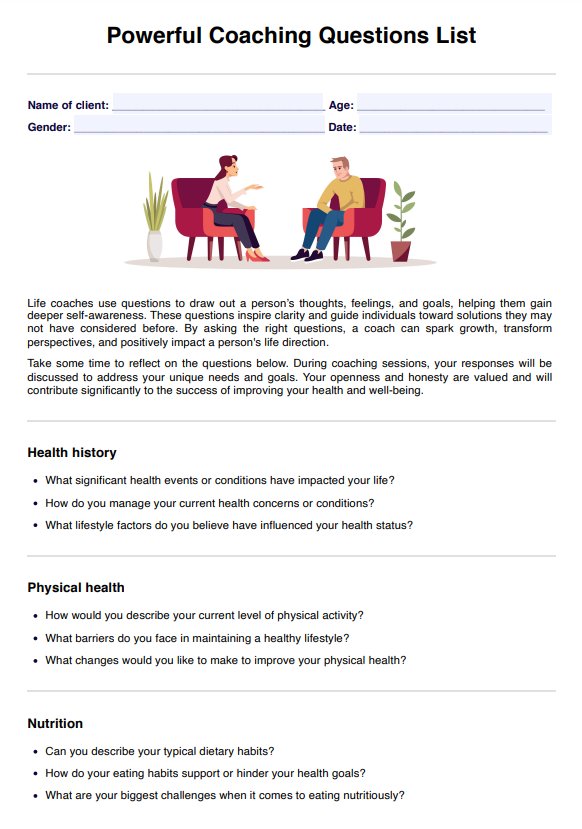Life coaching questions prompt individuals to reflect on their experiences, accomplishments, and strengths, allowing them to recognize and appreciate positive moments amidst life's challenges.

Powerful Coaching Questions List
Incorporate this Powerful Coaching Questions List during coaching sessions to guide meaningful dialogue with clients. Get this for free today!
Use Template
Powerful Coaching Questions List Template
Commonly asked questions
Clients often engage actively with life coaching questions, providing insightful and introspective answers that facilitate personal growth and self-discovery.
Yes, life coaching questions can be adapted for everyday conversations to foster key insights and deeper connections, promote self-awareness, and encourage meaningful individual interactions.
EHR and practice management software
Get started for free
*No credit card required
Free
$0/usd
Unlimited clients
Telehealth
1GB of storage
Client portal text
Automated billing and online payments











